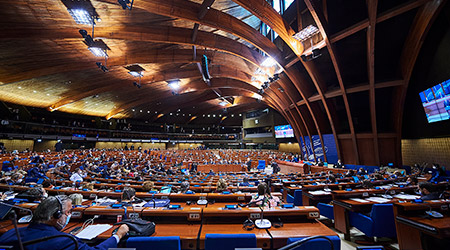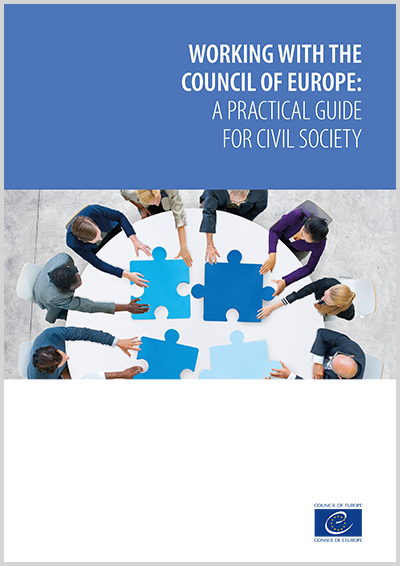Parliamentary Assembly

The Parliamentary Assembly acts as the democratic conscience of Europe, promoting the development and implementation of the highest standards of democracy, human rights and the rule of law.
It is made up of delegations from the Council of Europe member states mirroring the distribution of power in their home parliaments and holds four week-long sessions a year. It discusses and adopts recommendations, resolutions and opinions on any theme covered by the Council of Europe, often debating emerging and topical issues. It exercises political oversight over the action of governments and parliaments in promoting Council of Europe standards both in Europe and – increasingly – in neighbouring regions, and monitors how member states are respecting the commitments they made on joining. The Assembly’s texts serve as guidelines for national governments, parliaments and political parties both in member states and beyond.
Assembly delegations regularly observe elections in member or partner countries as part of international election observation missions, involving the OSCE Parliamentary Assembly, OSCE/ODHIR, the European Parliament and the NATO Parliamentary Assembly, assisted by experts from the Venice Commission.
The Assembly can demand action from the Committee of Ministers, with which it holds an ongoing dialogue, and its members have the power to question presidents and prime ministers on any topic. It scrutinises the actions of governments, monitors how far member states are respecting the commitments they made on joining the Organisation, and can investigate particular human rights abuses in a member state if national inquiries are lacking or inadequate. It must also give its green light before any country can join the Council of Europe and has used this power to set conditions on membership, such as ending the death penalty.
The Assembly works with parliamentarians and staff of national parliaments to ensure its key recommendations are better known both in member states and in parliaments enjoying Partner for Democracy status. It interacts closely with the Committee of Ministers, the intergovernmental sector, the Congress of Local and Regional Authorities, the European Court of Human Rights, the Venice Commission and the Council of Europe’s independent monitoring mechanisms. It co-operates closely with several regional and international organisations to maximise the impact of its action.
The Assembly supports the European Convention on Human Rights, which it helped to draw up, in particular pressing states to implement the Court’s judgments. It also has the power to request opinions from legal experts in the Venice Commission on whether new laws in member states are compatible with the Council of Europe’s democratic and human rights standards. The Assembly is electing the Court’s judges (article 22 ECHR).
Though it has no power to pass binding laws, the Assembly is in constant dialogue with governments, national parliaments, other international organisations and civil society. In this way, its texts filter down through law and practice to improve the lives of Europeans everywhere. When invited, the Conference of INGOs participates in relevant committee meetings, in particular those of the Migration, Equality, Social Affairs and Legal Affairs Committees. The Legal Affairs Committee has appointed a general rapporteur on the situation of human rights defenders. Just as in national parliaments, NGOs often provide valuable data and information when Assembly reports are being drafted and can be invited to give testimony at parliamentary hearings organised by the committees. They are able to inform and advise Assembly members in person during country visits and sessions in Strasbourg and actively contribute to the organisation of side-events and hearings to raise awareness of particular issues. In particular, national NGOs are often consulted by rapporteurs preparing regular assessments of countries subject to the Assembly’s monitoring procedure. The Assembly is a strong defender of civil society and human rights defenders. It has created the Vaclav Havel Human Rights Prize to honour outstanding work by human rights defenders, and adopted a series of resolutions and recommendations on this topic:
- Resolution 2382 (2021): Media freedom, public trust and the people’s right to know
- Resolution 2378 (2021): Strengthening the role of young people in the prevention and resolution of conflicts
- Resolution 2362 (2021): Restrictions on NGO activities in Council of Europe member states
- Recommendation 2194 (2021): Restrictions on NGO activities in Council of Europe member states
- Resolution 2225 (2018): Protecting human rights defenders in Council of Europe member States
- Recommendation 2133 (2018): Protecting human rights defenders in Council of Europe member States
- Resolution 2226 (2018): New restrictions on NGOs activities in Council of Europe member States
- Recommendation 2134 (2018): New restrictions on NGOs activities in Council of Europe member States



